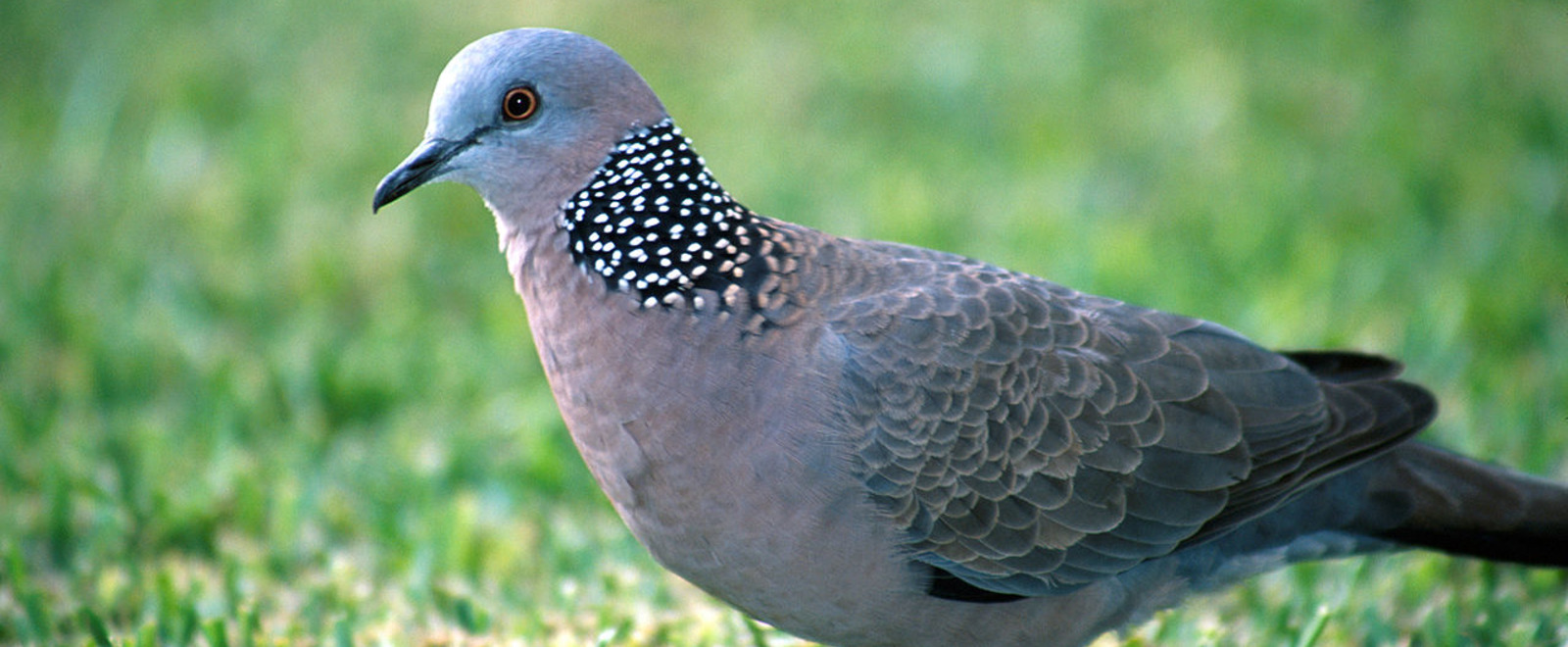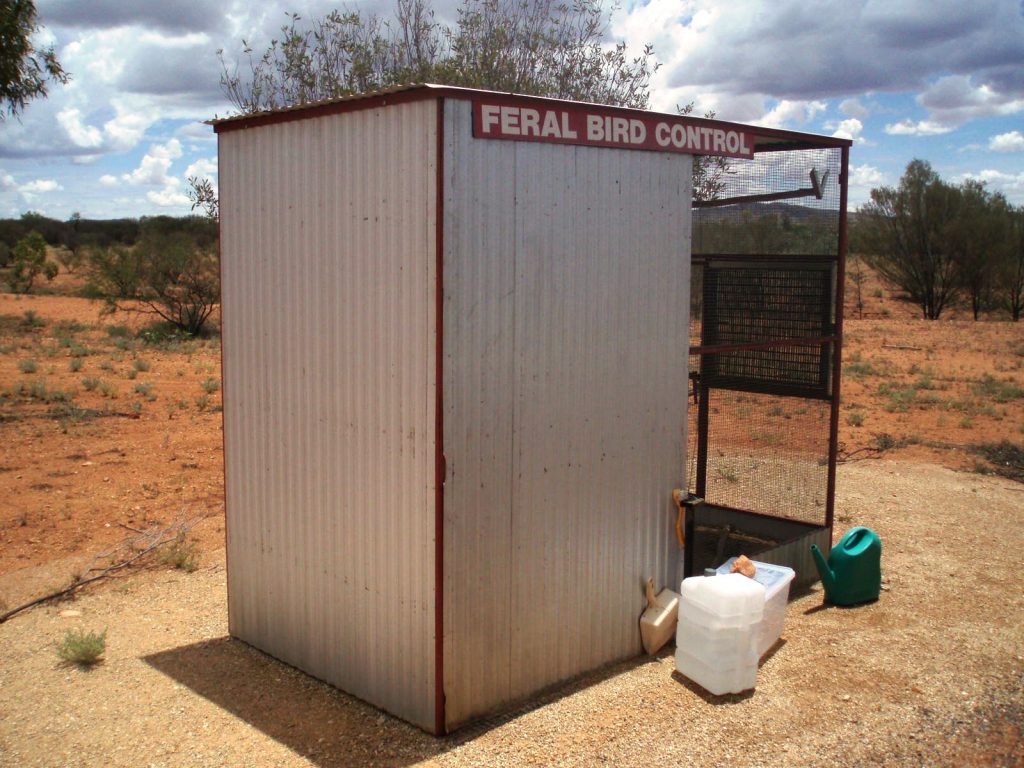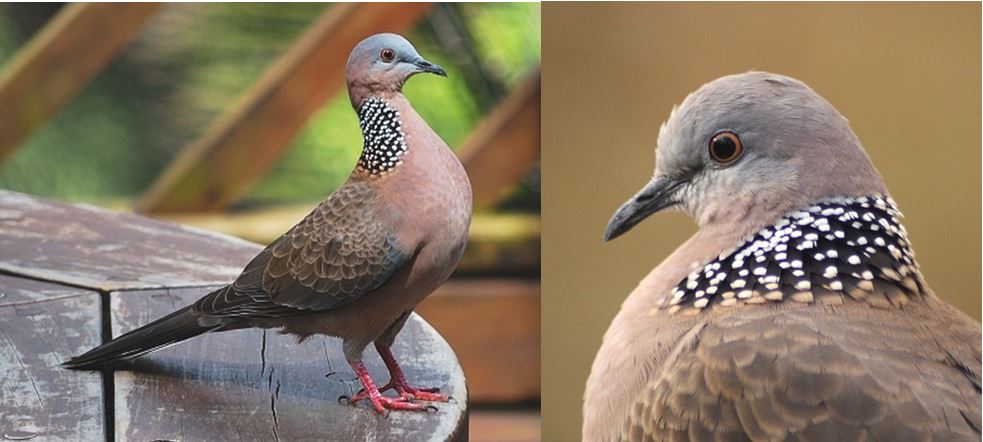Feral Spotted Turtle-Dove Trapping

Why Are Feral Doves a Problem?
Spotted Turtle-doves (Streptopelia chinensis) first became established in Alice Springs in the early 1990s when approximately 10 birds were liberated from a backyard aviary. Since that time, the population has steadily grown.
Identification of Spotted Turtle-doves is easy, once you know what you’re looking for. Get on the right track with this Dove Identification fact sheet to learn how to distinguish the ferals from the natives.
With growing populations of this feral bird, it impacts on the environment and residents of the town in a number of ways. Spotted Turtle-doves are domesticated birds that are highly suited to life in urban areas. They are able to breed all year round and compete with native species for shelter and nesting sites.
Spotted Turtle-doves will eat a wide variety of items including seeds, pet food and household scraps. Native birds in Alice Springs now have to compete with this highly adapted and aggressive species for food. Feral doves can be a nuisance around aviaries, fowl yards and pet feeding areas, where they scrounge for scraps and other food items. High concentrations of droppings deposited around these sites not only increase cleaning chores, but may pose a health hazard.
Prevent Feral Doves Establishing
Keep dense plants well-trimmed and maintained, inspect your property regularly for nesting activity, and destroy their nests (seek a second opinion on identification if you are unsure).
You can help to manage this species by preventing access by feral birds to pet food, in particular, covering chicken pens to prevent access to seed by Spotted Turtle-doves.
Trap Loans
Land for Wildlife has a range of Spotted Turtle-dove traps for loan. Please contact us to check for availability and arrange pick up or delivery.
We request that you complete a Feral Animal Trapping Agreement before using any Land for Wildlife traps.
To learn more about trapping Spotted Turtle-doves, download our Spotted Turtle-dove Trapping fact sheet. You can read more about the control of Spotted Turtle Doves via the Northern Territory Government fact sheet.
Once you begin a trapping program, please fill out a Catch Record Form, which will assist us with keeping tabs on feral animal trapping needs.
Make Your Own Trap
Land for Wildlife has developed some resources to assist members of the public to produce their own Spotted Turtle-dove traps, which can be found in the Spotted Turtle-dove Trapping fact sheet.
Land for Wildlife also run occasional Spotted Turtle-dove trap making workshops. Head to the Workshops and Events page to see if there is a session coming up and follow us on social media to get regular updates.
Disposal of Birds
We strongly recommend that all feral Turtle-doves are taken to the Alice Springs Desert Park feral bird control enclosure for disposal. Turn off Larapinta Drive onto the main entry road then turn left onto the service / workshop road and look for the Feral Bird Control aviary. Unlock the door and place Turtle-doves inside. Be sure not to let any other captives out.

Turtle-doves delivered to the Desert Park are euthanized humanely and fed to captive animals. This is a form of behavioural enrichment, especially for birds of prey, as Turtle-doves are a realistic prey size with feathers and bones to work around, keeping captive animal teeth, beaks, and claws sharp and exercised. The Desert Park will not accept dead birds for animal feed as it is a quarantine risk.
If you are in a pickle, call Land for Wildlife or Low Ecological Services and we may be able to deliver them to Desert Park for you.
Call the Alice Springs Reptile Centre to determine their capacity to euthanize and utilise Spotted Turtle-doves (as they can take up to half a dozen a week).
Trapping Ethics
Before trapping begins, it is wise to make yourself aware of the Ethical Considerations of Trapping.
We recommend that persons undertaking trapping activities make themselves aware of the Animal Welfare Act and their obligations under the law, and to be mindful of the welfare, health and safety of all animals whilst conducting trapping programs.
